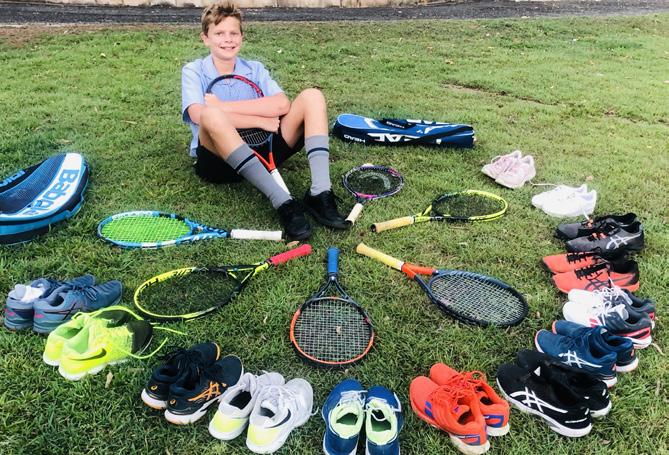
3 minute read
Effective thinking in action
While studying chemical engineering at The University of Queensland, BGS Old Boy Riley O’Donnell ’14 took every opportunity to gain work experience in the booming gas industry. Hundreds of wells extracting coal seam gas are sunk in Queensland each year and several big firms work in the area.
During his placement, the laborious way the ‘completion’ is planned – what order to put the equipment down the well to optimise the gas – came as a surprise.
“I could see there was this big gap – people weren’t writing software for engineers – and designing completions is quite a complex problem,” he said. “It’s a bit like a game of Tetris, which order you’re going to put the equipment down to hit your targets.”
The software didn’t exist, so O’Donnell taught himself using resources online and wrote his own. In that way, software start-up Endla – which means ‘make, build, create’ in the South African Tsonga language – was born.
“A lot of people do the design in Excel spreadsheets, which works ok, but you don’t get an optimal solution because you can’t run as many simulations and there are a lot of mistakes. It also takes much longer.”
Listening to O’Donnell tell the story of Endla is a masterclass in turning smarts, confidence and optimism into a business.
“I thought designing completions in coal seam gas was an interesting problem that I would work on in my spare time. It turned out really well, Senex Energy paid us a little for the software and my company grew out of that.”
After graduating with a dual degree in engineering and finance last year, O’Donnell recruited fellow Old Boy and software engineer Michael Moore ’14 to join him at Endla and they attracted Origin as a client. Endla now designs completion for 20% of the coal seam gas wells in Queensland, saving millions of dollars for these companies.
“We estimate we can save $40,000 per well per year; if a company has 100 wells per year the value added is about $40 million each year, but not to the extent that this is a published study,” O’Donnell said. “It’s pretty cool.”
“One of the crazy things with process engineering is that it hasn’t really gone anywhere in terms of how things are simulated and designed,” Moore explained. “We’re working on the idea that you have an actual experiment in the field, with all your equipment collecting data. Our empirical models are more detailed than the lab derived ones, so you get better simulation of the process.”
Friendly and well-spoken, O’Donnell and Moore epitomise the ideal BGS graduate, and it comes as no surprise they both achieved OP1s or almost perfect ATARs. By identifying a problem and using digital skills to design a solution, they are putting the principles behind the School’s Effective Thinking Cultures approach into action.
O’Donnell points to the BGS Year 11 coffee enterprise as an early influence. “Economics teacher Kate Stevenson really put me on the entrepreneurial path. The coffee business and other entrepreneur programs were good experiences.”
Having gone through UQ’s iLab Ventures program at the start of 2021, O’Donnell and Moore are actively hiring to grow internationally. A third Old Boy, engineer Luke Simpson ’15 has joined Endla, and they’re working through UQ contacts and the ‘BGS network’ before they look further afield.
“The market is really competitive for software engineers,” Moore said. “We’re going through our networks to find two more developers that we can trust from the start and that we’re confident in their abilities and there’s a good culture fit.”
And why the South African name? “Early in the journey, I had a South African business partner who came up with the name and ‘make, build, create’ worked for me,” O’Donnell said. “Plus, the domain name was available.”










